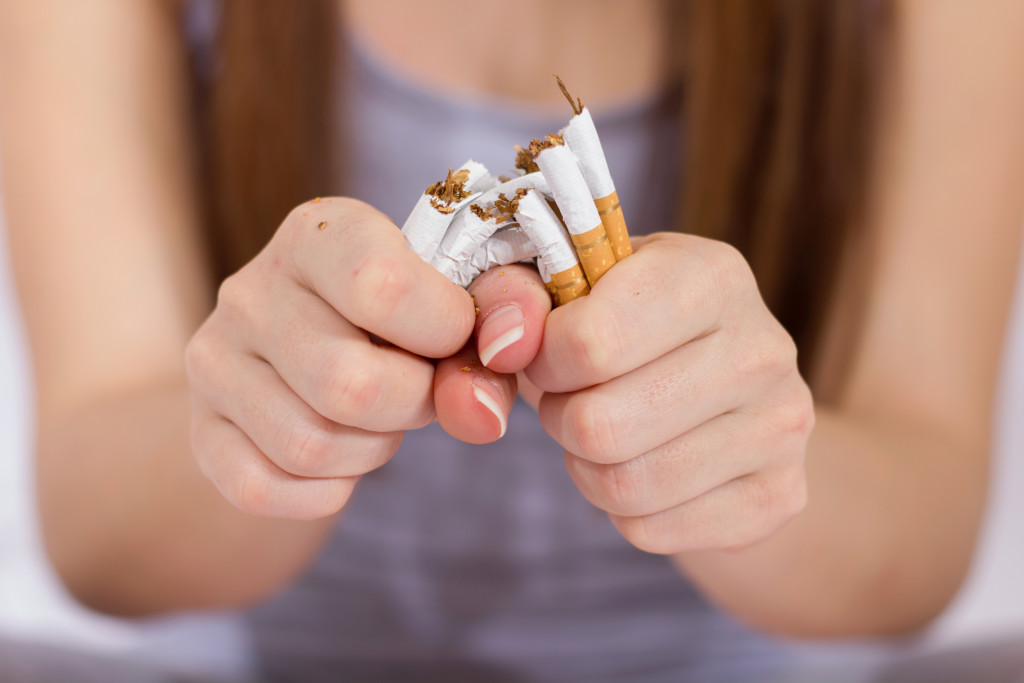Carcinogens or cancer-causing agents come into contact with us in our daily lives. They’re found in food, cosmetics and even our environment. Constant contact with these carcinogens can heighten our risk of cancer. Remember to have a healthy lifestyle to avoid getting worse illnesses.
Here are some types of carcinogens that you should avoid:
6 Common Carcinogens That You Should Know About
-
Alcohol
An occasional drink won’t pose a serious harm to your health, but heavy drinking can lead to major health risks like liver, throat and esophagus cancer. Ethanol and its by-product acetaldehyde cause damage to the cells. Acetaldehyde is toxic and can cause irreversible damage to your DNA. While the type of alcohol doesn’t have an impact on the risk, the amount you consume does, so it’s important to drink moderately.
It’s recommended that you take about 100 grams of alcohol every week. Drinking above that limit is often related to lower life expectancy. Remember that heavy drinking can also lead to other serious diseases like cirrhosis and heart disease.
-
Cosmetic products
Some carcinogens, such as formaldehyde and formaldehyde-releasing preservatives are commonly found in personal care products like makeup or other beauty products. Avoid them by constantly reading the labels and avoid ingredients like parabens, phenacetin, ethylene oxide and benzene. These ingredients can cause cancer, reproductive toxicity and endocrine disruption.
You can opt for organic and natural skincare products to avoid these ingredients. Make sure that you’re well-informed on harmful chemicals and choose your makeup, whitening products and other skincare products that are carcinogen-free.
-
Tobacco

Constant smoking of tobacco products causes about 9 out of 10 cases of lung cancer. Unfortunately, it increases the risk of almost all other cancer types. By simply breathing, smoking can deliver carcinogens to many parts of the body. Tobacco contains almost 70 probable carcinogens, so it should be avoided.
Even second-hand smoke exposure can increase the risk of cancer. Take note that chewing tobacco or e-cigarette and vapes are not a healthy alternative as they have similar risks. Smoking causes cancer of the mouth, lungs, esophagus and larynx.
-
Processed Meat
Processed meats like hotdogs, sausages and deli meats contain preservatives like nitrates and nitrites that can cause issues on our gastrointestinal tract. They’re converted to a harmful compound that can damage your gut lining cells. Over time, it can develop stomach or colorectal cancer. However, not all nitrates are harmful. Beets, carrots and spinach have nitrates that when coupled with antioxidants, can help prevent harmful compounds.
Have more lean meats and fish in your diet, and eat red meats and processed food occasionally. When you’re out shopping for meats, check the ingredients for nitrate, nitrite, salted or cured and avoid those.
-
Sunlight
Overexposure to ultraviolet rays can cause accelerated aging and damage. It can eventually lead to basal cell carcinoma, melanoma or squamous cell carcinoma. Your risk is higher if your family has a history of these diseases. Always remember to use sunscreen with SPF (Sun Protection Factor) higher than 30 and wear sun-protective clothing when going outdoors.
To be extra safe, you can opt to use natural, homemade sunscreens. You can mix aloe vera with coconut oil that can also be perfect for treating burns. Aloe vera gel mixed with almond oil can also be a good sunscreen spray. If you have oily skin, you can use jojoba oil or sweet almond oil to avoid any oil buildup on your skin.
Some warning signs of skin cancer include moles that grow or bleed, or wounds that won’t heal. You should do a self skin check monthly to look for signs of abnormalities. Examine your body in front of a mirror and carefully look at your arms, legs, toes and feet.
-
Engine Exhaust
The gas and soot in diesel engines can cause lung cancer. Lower your exposure to these gases by avoiding too much time in traffic and spending time next to diesel-run vehicles. You can also follow your workplace safety guidelines to help protect yourself. Observe proper ventilation at home or workplace
Exposure to diesel exhaust can irritate your throat, eyes, nose and lungs. People with allergies are more at risk, and it can cause inflammation in the lungs that can worsen asthma attacks or chronic respiratory symptoms.
Ways to prevent cancer are still evolving. Although these carcinogens pose a major health risk, your health is also affected by your genes, the food you take and the lifestyle you choose. The best way to prevent cancer is to avoid these carcinogens as much as possible, exercise and have a healthy diet.

